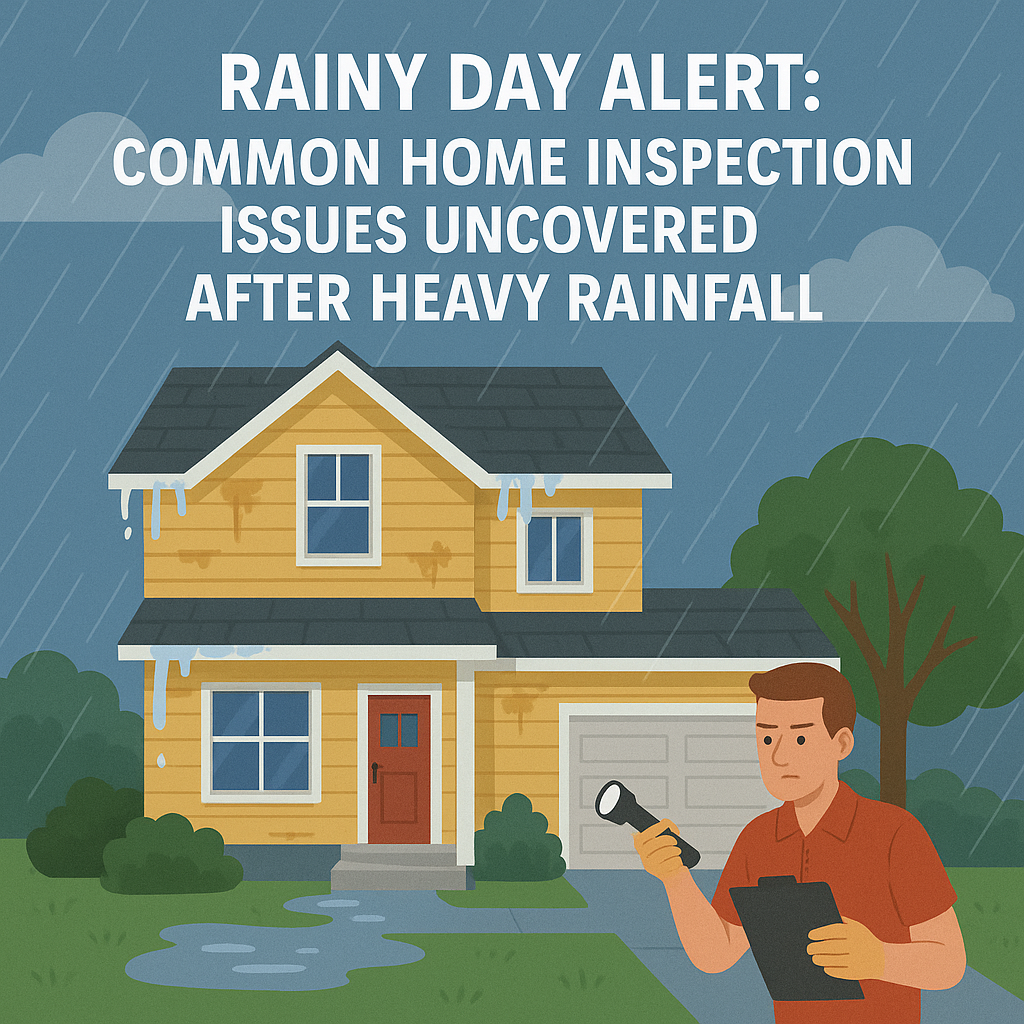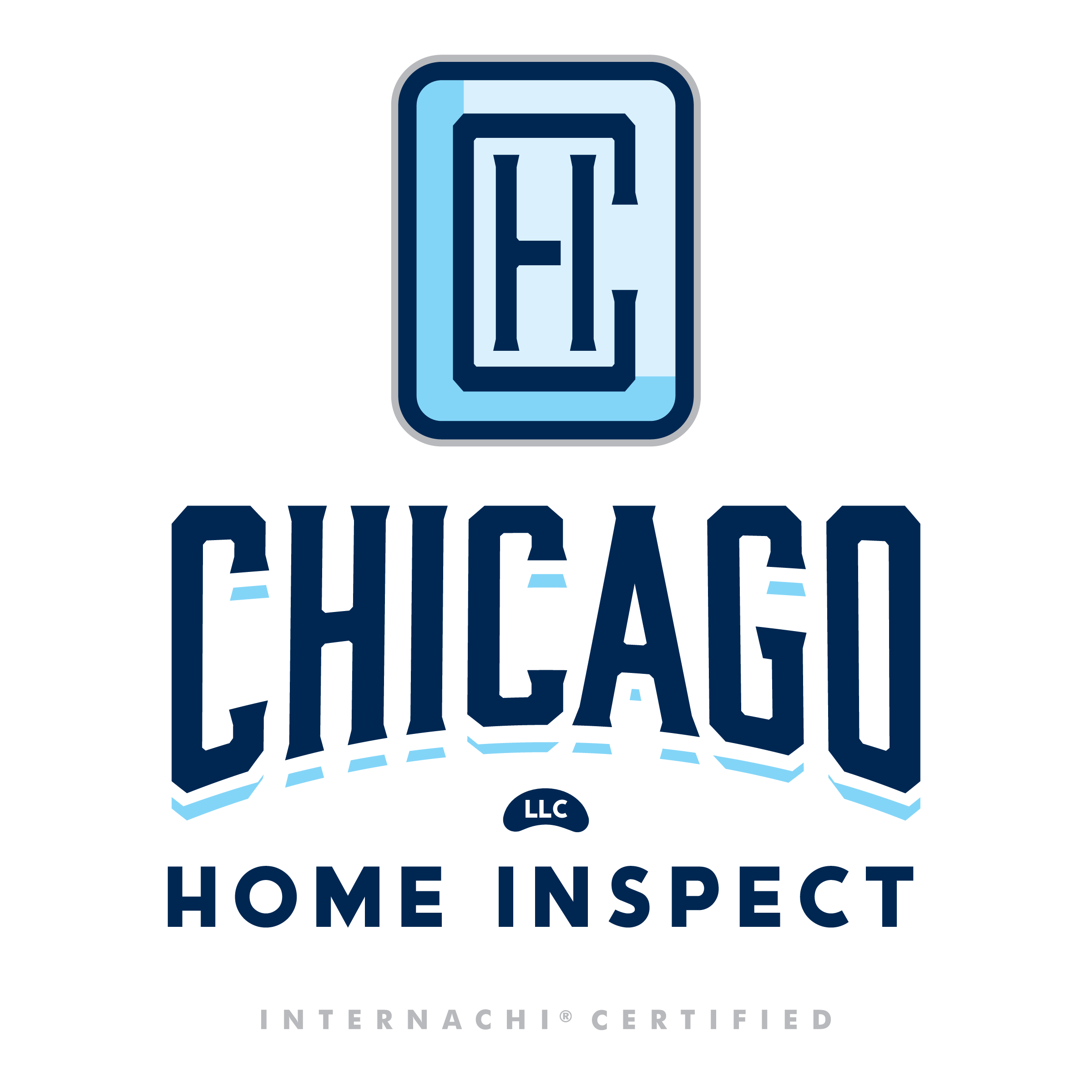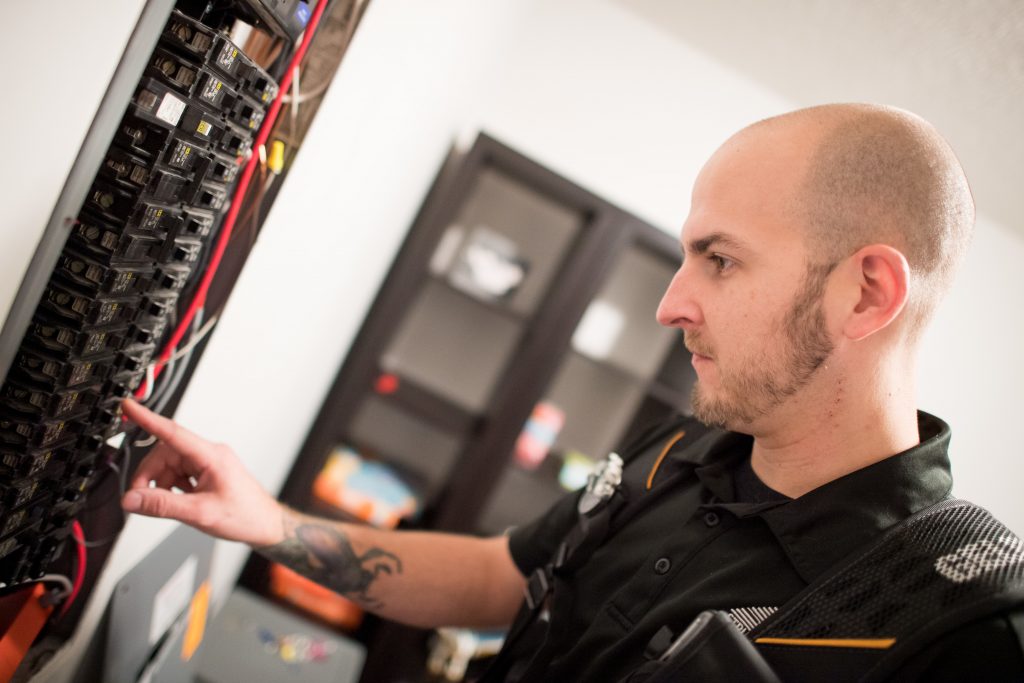
Chicago residents know that rain is an inevitable part of life, especially during the transitional seasons of spring and autumn. While a gentle rainfall can nourish gardens and refresh the air, heavy rainfall can expose significant vulnerabilities in your home. As professional home inspectors in Chicago frequently discover, excessive moisture reveals hidden problems that, if not promptly addressed, can lead to costly repairs and structural issues. Here’s what every homeowner should watch out for after a downpour and how a professional home inspection can help you identify and mitigate these concerns early.
1. Roof Damage and Leaks
One of the most common problems home inspectors in Chicago identify after heavy rain is roof damage. Missing or damaged shingles, cracked flashing, and clogged gutters often result in leaks and water intrusion. Over time, even minor leaks can cause significant water damage, mold growth, and structural deterioration. Inspectors frequently uncover issues in attic spaces, around chimneys, and near vent pipes, where water typically penetrates first. During a home inspection, these issues can be thoroughly evaluated and addressed.
Homeowners should regularly inspect their roofs visually from the ground and schedule professional inspections annually or after particularly severe storms. Promptly addressing minor roof problems can prevent extensive interior damage.
Home inspections also provide homeowners with peace of mind, ensuring that any potential issues are identified before they escalate into major problems.
2. Foundation Issues and Basement Flooding
Chicago homes, particularly older structures, are susceptible to foundation problems exacerbated by heavy rainfall. Inspectors commonly encounter basement flooding and foundational cracks after significant storms. Poorly graded landscaping can direct rainwater towards the foundation, causing water accumulation and eventual seepage into basements.
A thorough home inspection after heavy rain will assess the condition of the foundation and basement. Inspectors look for signs of moisture intrusion, such as damp walls, water staining, musty odors, and visible mold growth. Addressing these issues early can significantly reduce repair costs and health risks associated with mold.
3. Drainage and Gutter Issues
Effective drainage is crucial to keeping Chicago homes dry during heavy rainfalls. Inspectors often discover clogged, damaged, or improperly installed gutters and downspouts. When gutters fail to channel water away from your home effectively, it leads to pooling around the foundation, which may cause soil erosion, basement leaks, and foundation damage.
Regular gutter cleaning, especially during the fall, is essential in preventing blockages. Additionally, downspouts should extend at least 5 feet from your home to ensure proper water drainage.
4. Window and Door Seal Failures
Windows and doors exposed to harsh weather conditions often develop compromised seals. Home inspectors frequently find issues related to caulking, weather stripping, and improper installations that allow water infiltration. After a heavy rainfall, these vulnerabilities become particularly noticeable.
Inspecting window and door frames for water stains, mold, or peeling paint can indicate moisture penetration. Re-sealing these areas promptly is essential to avoid costly damage.
5. Attic Ventilation and Moisture Problems
A poorly ventilated attic in a Chicago home can become a significant issue following heavy rainfalls. Home inspectors often identify moisture build-up, mold growth, and insulation damage in attics with inadequate ventilation. Moisture trapped in the attic space can lead to wood rot and structural weakening over time.
Inspectors recommend installing proper ventilation systems, including ridge vents, soffit vents, or powered attic ventilators, to maintain adequate airflow and prevent moisture accumulation.
6. Landscaping and Grading Issues
Home inspections often highlight landscaping and grading problems as significant contributors to water-related damage after rainfall. When landscaping directs water towards the home, it creates conditions ripe for foundation damage and basement flooding. Inspectors frequently advise homeowners to ensure their yard slopes away from the foundation at a recommended grade of at least 6 inches over the first 10 feet.
Homeowners should regularly inspect their property following heavy rains to identify pooling or erosion and correct landscaping promptly.
7. Plumbing System Vulnerabilities
While many Chicago homeowners focus on external vulnerabilities after rainfall, home inspectors frequently uncover internal plumbing issues exacerbated by increased moisture levels. Heavy rains can overload municipal sewer systems, leading to sewer backups. Homeowners often notice slow drains, gurgling sounds, or foul odors indicating plumbing issues post-rainfall.
Inspectors advise installing backflow preventers, especially in basement plumbing fixtures, to protect homes from sewer backups during intense storms.
8. Mold Growth and Indoor Air Quality Concerns
Perhaps the most critical concern discovered after heavy rains is mold growth. Damp, humid environments provide ideal conditions for mold spores to flourish, particularly in basements, crawl spaces, and attics. Home inspectors in Chicago routinely emphasize the health risks associated with mold, including respiratory problems, allergies, and skin irritation.
Regular inspections and quick action to remediate water intrusion and moisture accumulation can prevent mold growth. Effective moisture control, proper ventilation, and routine cleaning are key to maintaining indoor air quality.
The Importance of Timely Home Inspections
For homeowners in Chicago, staying ahead of rain-related home maintenance issues requires vigilance and proactive planning. Engaging professional home inspectors in Chicago to evaluate your property following heavy rainfall can provide peace of mind and prevent expensive future repairs. An expert inspector will deliver comprehensive insights into the condition of your home, identifying both visible and hidden problems.
Regular inspections after significant weather events, coupled with annual check-ups, ensure that your home remains structurally sound and safe. Investing in timely inspections helps maintain your property’s value, safety, and comfort, particularly critical in a climate as dynamic as Chicago’s.
Final Thoughts
Heavy rainfall in Chicago is unavoidable, but serious damage to your home doesn’t have to be. By understanding and addressing common issues home inspectors frequently encounter following storms, you can safeguard your property against unnecessary deterioration and expenses.
Stay vigilant, schedule regular home inspections, and promptly address any issues uncovered. Protecting your home from rain-related damage ensures your investment remains sound and your home continues to be a safe haven for your family.
If you’ve recently experienced heavy rainfall and have concerns about your home’s condition, consider reaching out to professional home inspectors in Chicago. An inspection today can prevent headaches tomorrow.



